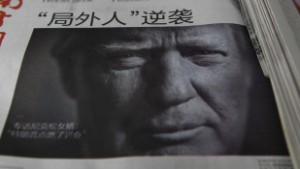What does Donald Trump mean for Asia?
Loose talk or hardened policy prescriptions?
That's the big question facing Asia as President-elect Donald Trump gears up for the Oval Office.
"Trump's victory has amplified uncertainty across Asia. Many people are dismayed," says Jeff Kingston, director of Asian studies at Temple University in Japan.
From China and Japan to the smaller nations of southeast Asia, the region's leaders want to know whether Trump will make good on his campaign promises and potshots, which have the potential to shake up alliances, upend the geopolitical map and risk all-out conflict.
Shinzo Abe, Japan's prime minister, has been quick to sense deep shifts in US interests.
He will be the first Asian leader to meet Trump in person on Thursday en route to the APEC summit in Peru, when he'll try to safeguard the alliance between the US and Japan.
"I think Abe understands that Trump is a brittle person who takes offense easily and he will want to set a positive tone. He didn't have good chemistry with Obama," says Kingston.
During the campaign, Trump stunned Japan and South Korea, two of American's strongest allies, by suggesting they were free-riding on US security commitments.
Particularly jaw-dropping were the suggestions that Japan, which until last year had a pacifist constitution, should obtain nuclear weapons to protect itself from North Korea.
"Japan is the closest US ally in Asia and he'll want this to be reaffirmed," says Kingston.
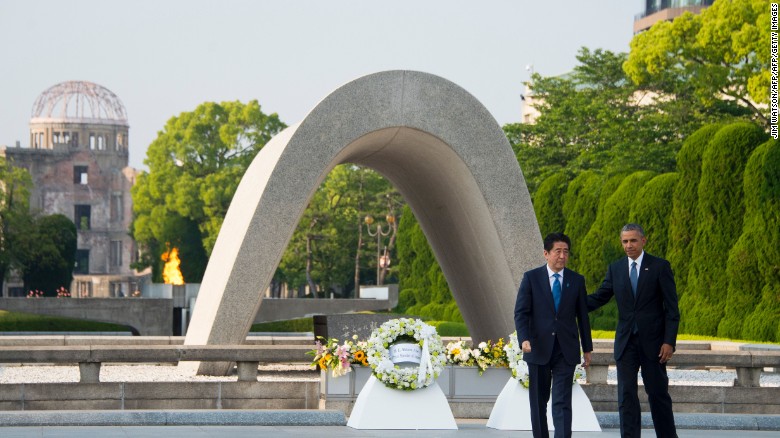
Barack Obama and Japanese Prime Minister Shinzo Abe turn around after laying wreaths to commemorate the victims of the world's first nuclear attacks during a visit to the Hiroshima Peace Memorial Park on May 27, 2016.
Abe "will be seeking security reassurances and will no doubt press the point that it would be counterproductive to start a trade war with China," he added.
Japan will also want to know how Trump plans to approach North Korea, which has ramped up its testing of missiles this year, including a nuclear warhead.
Trump has said he would be happy to host the country's dictator, Kim Jong Un, for a visit.
"What the hell is wrong with speaking?" Trump said in June.
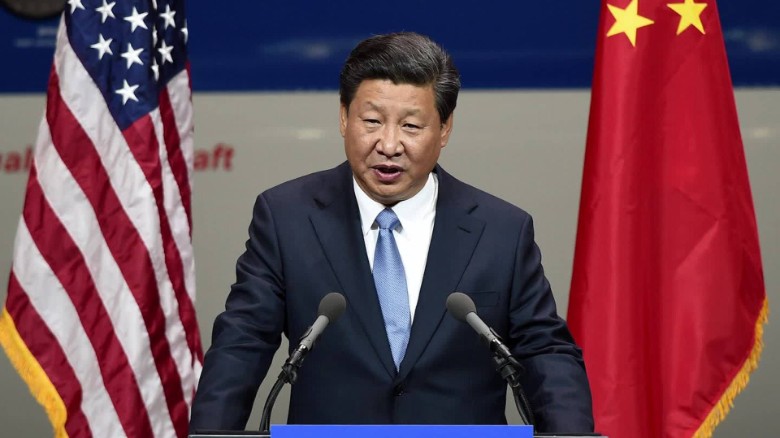
How will Trump deal with China?
China has been a campaign trail punching bag for Trump. He threatened an all-out trade war with Beijing, which he has accused of "raping" the US.
And Beijing is braced for Trump's blows, at least initially.
"It is possible that in the initial stage of Trump's presidency, he might bash China to establish authority as a new commander-in-chief, " an editorial in the state-run Global Times newspapersaid.
However, Shen Dingli, vice dean of the Institute of International Affairs, Shanghai's Fudan University, is skeptical that Trump will make good on his campaign rhetoric given the deep ties between the world's two biggest economies.
"A trade war is inconceivable," said Shen.
"Trump is a smart person. He said this to get the votes. Once he's in power, he will continue to be smart and won't want to hurt his chances to be re-elected."
Shen also expects Trump to focus more on his domestic priorities, making the US less likely to tussle with China over issues like the South China Sea. President Barack Obama's pivot to Asiawas deeply unpopular in China.
Trump's grandchild a viral hit in China
The Global Times painted Trump as an isolationist who, with a highly divided nation at home, would be "reluctant to raise antagonism with China."
"Without unity inside, a major power won't be determined to make troubles outside," the editorial said.
Others have suggested that Trump, who has advocated torture, is less likely than his predecessors to take China to task over human rights abuses.
Kingston said Trump's reception in China will ultimately depend on whether he delivers on the tough talk on trade.
"If he does, he will find it difficult to work with China. Trump has a short fuse, he could be easily manipulated and that could lead to conflict."
"But that aside, Trump has gifted them (China) global influence."
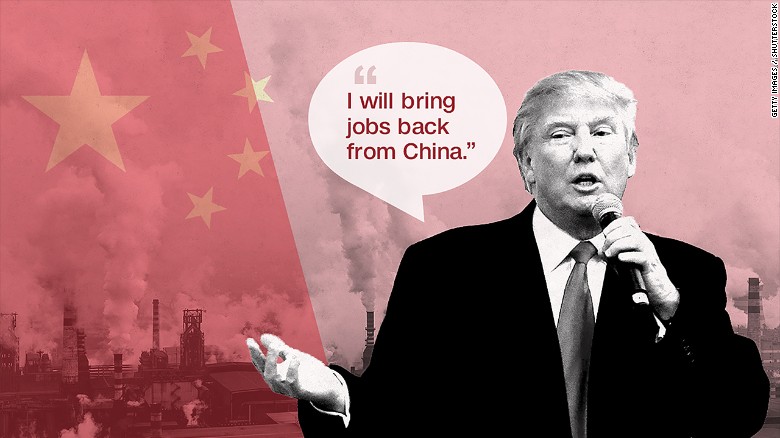
America's complicated trade relations with China
China's Xi Jinping and Donald Trump speak after election win
Trump's victory has come at a bad time for South Korea. Its president, Park Geun-hye, is embroiled in a corruption scandal, that has led to unprecedented mass protests and sparked talk she may have to resign.
"Getting in early is smart for Abe," said John Delury, an associate professor of Asian Studies at Yonsei University in Seoul. "South Korea right now, it's (effectively) leaderless, there's nobody really to meet Trump."
Park is expected to be questioned by prosecutors this week, making travel unlikely. Multiple aides have resigned and she was forced to sack her prime minister.
There's a lot at stake. The country, which is technically in a state of war against a nuclear armed North Korea, is home to 28,500 US troops that would defend the country in case of conflict.
It's also where the United States plans deploy THAAD, a sophisticated missile defense system.
Trump said during the election he would be willing to consider withdrawing US troops based in South Korea unless Seoul paid a larger share of the cost.
"Trump talking about renegotiating the alliance -- he feels he has a strong mandate. Park's lost the mandate, that's a bad way to go into a negotiation," Delury added.
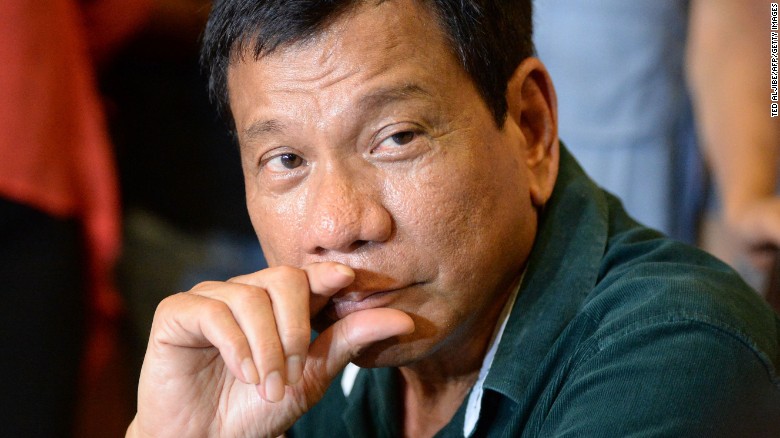
This man compares himself to Hitler
There was no love lost between Philippines President Rodrigo Duterte and President Obama. Duterte called the outgoing US president a "son of a bitch" and threatened military and economic separation from its former colonial master.
The White House under Trump would have a better relationship with Duterte, who are both strongmen populists, says Richard Javad Heydarian, a political science professor at De La Salle University in Manila.
He says Trump is less likely to rap Duterte over his controversial war on drugs and Duterte has already appointed Trump's business partner in the Philippines as a US trade envoy.
"Duterte as president will be more comfortable with Trump. Trump's more relaxed on human rights and democracy," Heydarian says.
However, Heydarian fears a Trump administration, preoccupied and distracted with domestic issues, would not benefit smaller Asian nations like the Philippines in the longer term.
"The US ability to project its power will be reduced and the momentum will go to China."
News Courtesy: www.cnn.com

